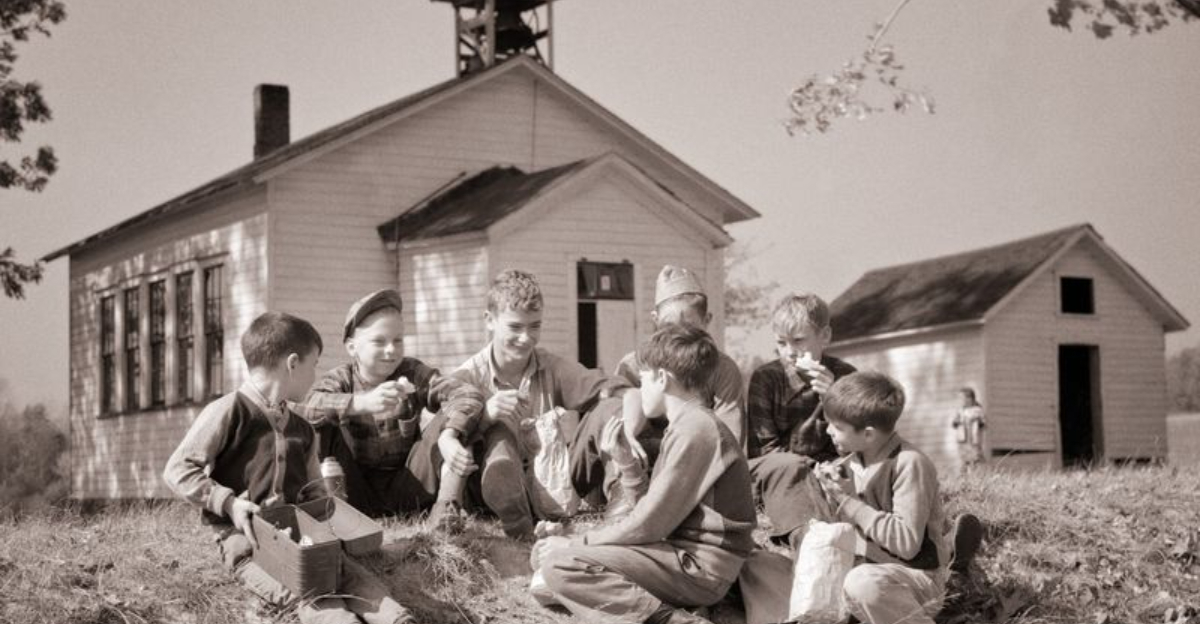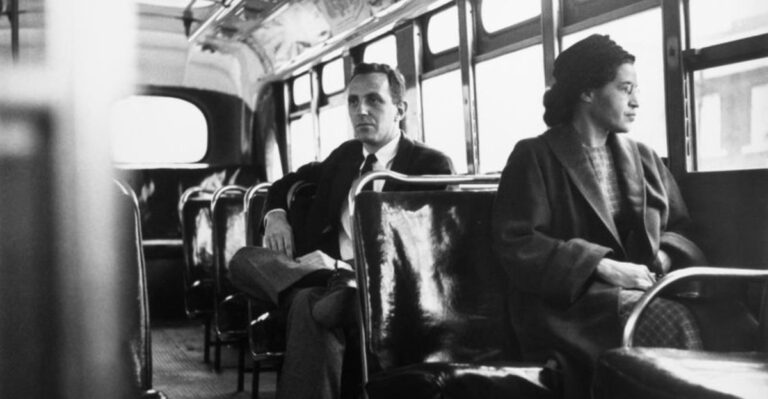15 Important Societal Rules All Boomers Grew Up With
The Baby Boomer generation, born between 1946 and 1964, grew up in a world governed by societal norms that shaped their values and expectations. These unwritten rules provided structure in their lives and often dictated behavior in various social contexts.
Here’s a nostalgic look at 15 societal rules that were significant during the formative years of Boomers, offering a contrast to the evolving norms of today.
1. Always respect your elders

“Respect your elders” was more than just a saying for Boomers; it was a way of life. This principle was instilled early on, as children were taught to value the wisdom and experience of their elders. Whether addressing grandparents or community leaders, maintaining a respectful demeanor was essential.
Boomers often remember moments spent listening to stories from their elders, learning life lessons that would guide them through their own journeys. In a time when oral tradition was still prominent, elders were seen as the keepers of family history and values.
This respect was not merely about obedience but about acknowledging the contributions and sacrifices of older generations. It fostered a sense of continuity and belonging across generations.
2. Never speak unless spoken to
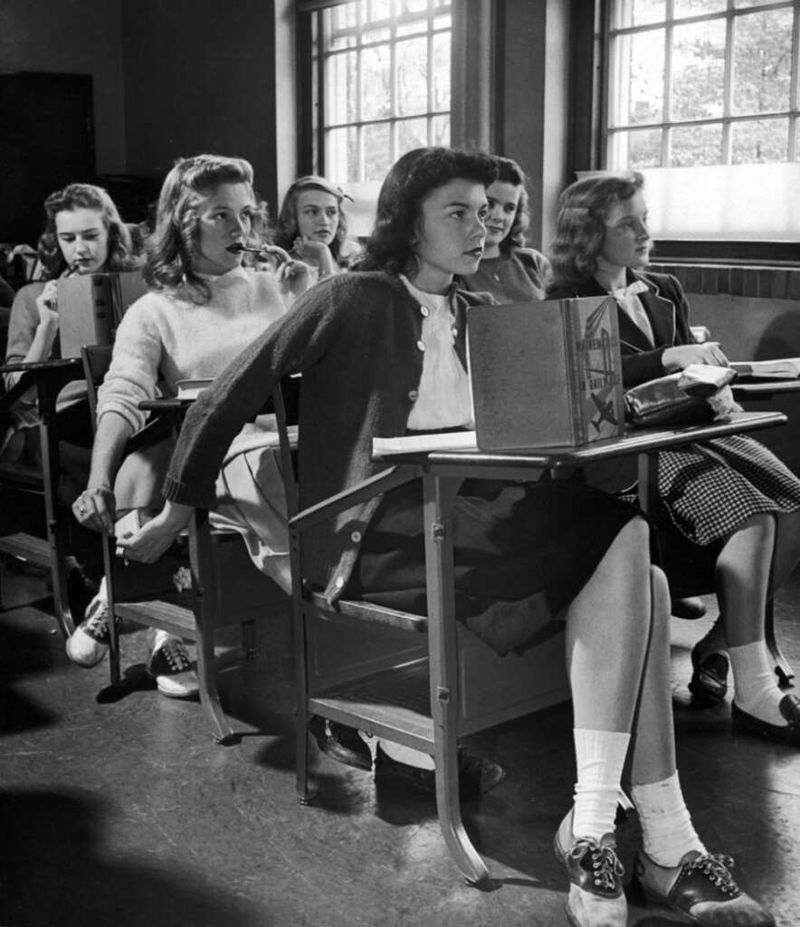
In a Boomer’s childhood, silence was indeed golden, especially in formal settings. “Never speak unless spoken to” was a rule that emphasized discipline and respect for authority. This guideline was particularly prevalent in schools, where students were expected to listen and learn without interruption.
Many Boomers recall the strict silence in classrooms, broken only by the teacher’s voice. This taught them patience and the importance of listening before speaking.
While this rule may seem restrictive today, it was seen as a way to teach self-control and respect. It shaped the Boomers’ approach to communication, where thoughtfulness and measured responses were valued over impulsive chatter.
3. Keep your elbows off the table
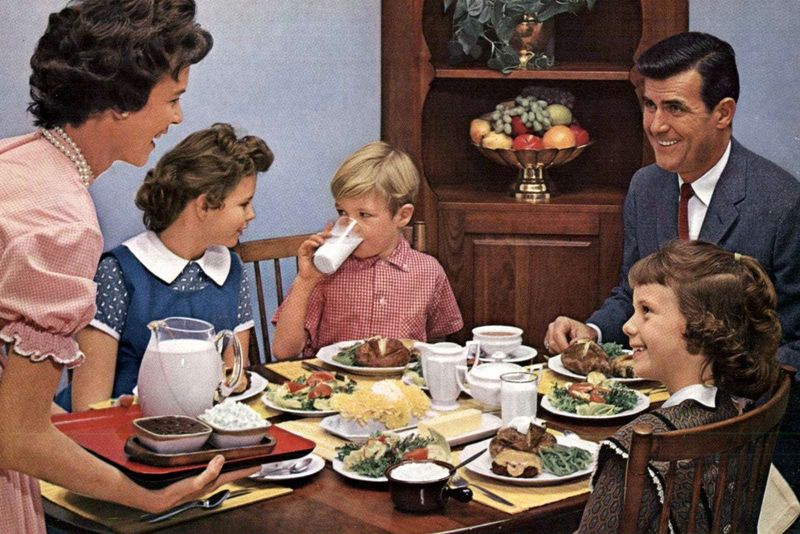
“Keep your elbows off the table” is a classic rule of etiquette that many Boomers vividly remember from family dinners. This rule was part of a broader emphasis on good manners and proper dining etiquette.
From a young age, children were taught the importance of maintaining a polite demeanor at the table, reflecting respect for those around them. Dining was a social activity, and observing this rule was part of participating graciously.
Boomers often associate this rule with family gatherings, where the dining table was a place for connection and conversation. Such practices instilled a sense of discipline and awareness of social norms in their formative years.
4. Church on Sundays wasn’t optional
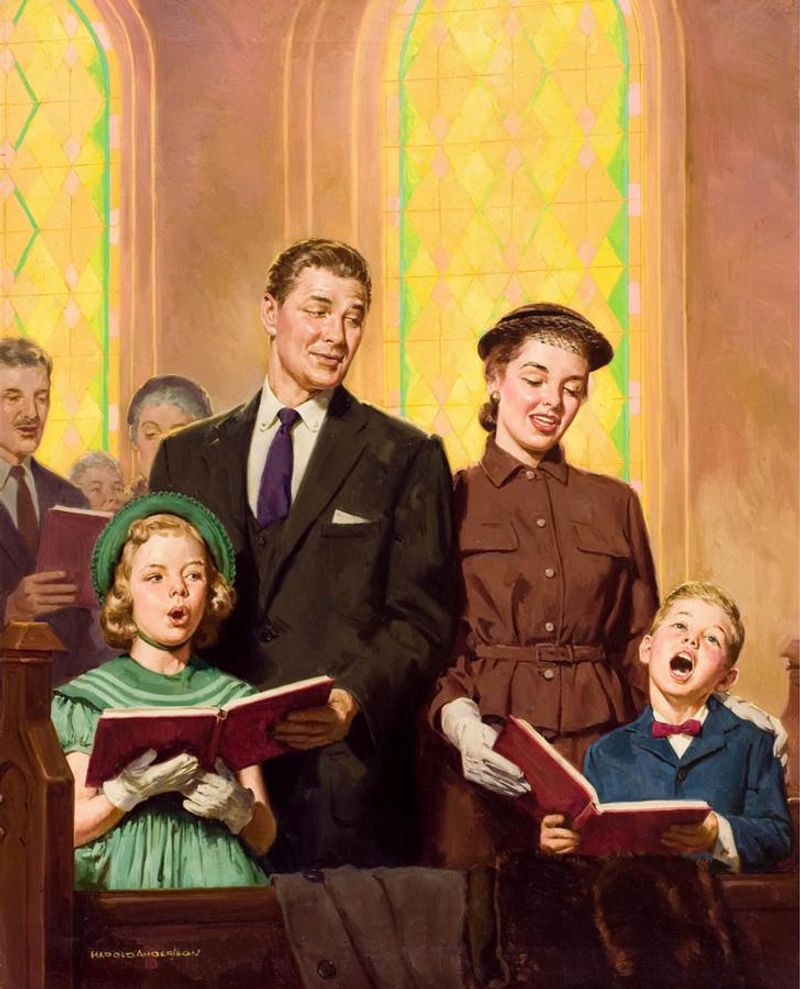
For many Boomers, Sunday meant church, a non-negotiable weekly tradition. This practice was a cornerstone of community life, where families gathered not only for worship but also for social interaction.
Church attendance was about more than religious observance; it was a community affair that reinforced social bonds. It provided Boomers with a sense of belonging and identity, rooted in shared beliefs and values.
This tradition instilled a routine of reflection and togetherness, emphasizing the importance of faith and community involvement. Many Boomers fondly recall Sunday services followed by family meals, cementing both spiritual and familial ties.
5. Boys don’t cry

“Boys don’t cry” is a phrase that encapsulates the stringent gender norms of the Boomer era. During this time, boys were encouraged to be stoic, embodying strength and resilience, often at the expense of emotional expression.
Many Boomer men recall being told to “toughen up” in the face of adversity, a lesson that often stuck with them into adulthood. This rule was part of a broader societal expectation for men to be the strong, silent type.
While these norms are increasingly challenged today, for Boomers, they were foundational in shaping traditional masculine identities, emphasizing control and endurance over vulnerability.
6. Girls should be “ladylike”

For Boomer girls, being “ladylike” was a social expectation that governed their behavior and appearance. This rule encompassed a range of etiquette, from dressing appropriately to speaking softly and behaving demurely.
This expectation was a reflection of the era’s gender roles, where femininity was closely associated with grace and decorum. Many Boomer women recall being taught to prioritize appearance and mannerisms, as these were seen as integral to a woman’s identity.
While today’s gender norms are more fluid, Boomers grew up with the understanding that their behavior reflected not only on themselves but on their families, making “ladylike” conduct a matter of pride and reputation.
7. You never talked back to teachers
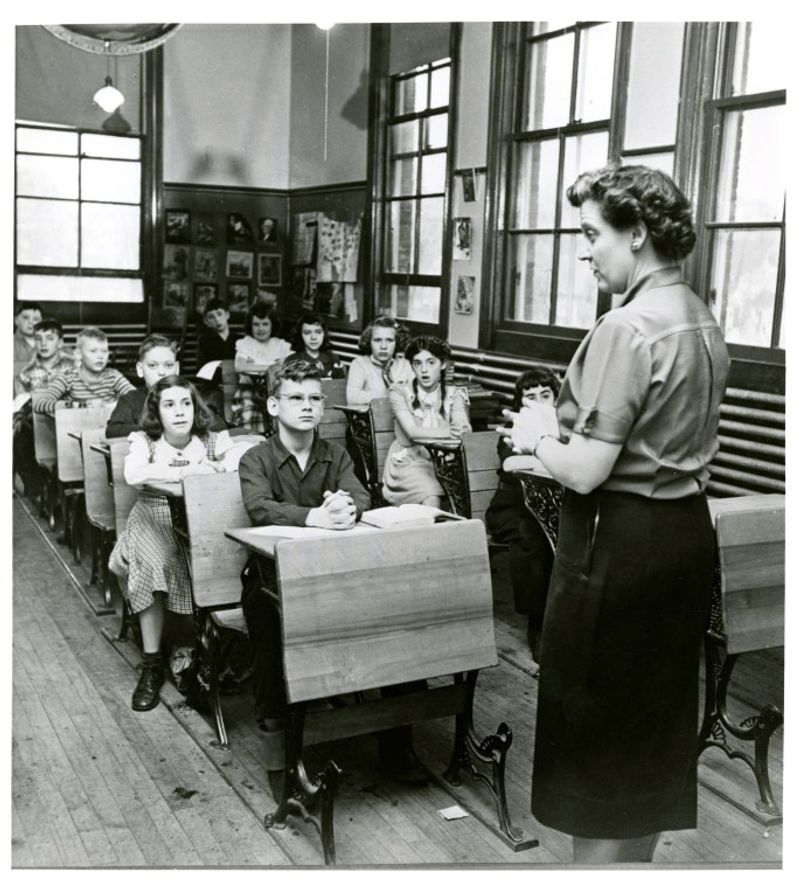
Respect for authority, particularly teachers, was a hallmark of the Boomer upbringing. “You never talked back to teachers” was more than a rule; it was an expression of the high regard in which educators were held.
Boomers often recall the strict classroom environments where discipline was key, and questioning authority was not encouraged. This rule taught them the value of hierarchy and respect in educational settings.
While today’s educational landscape encourages more dialogue, Boomers learned to value the knowledge and position of their teachers, acknowledging them as pivotal figures in their academic and personal growth.
8. Marriage came before moving in
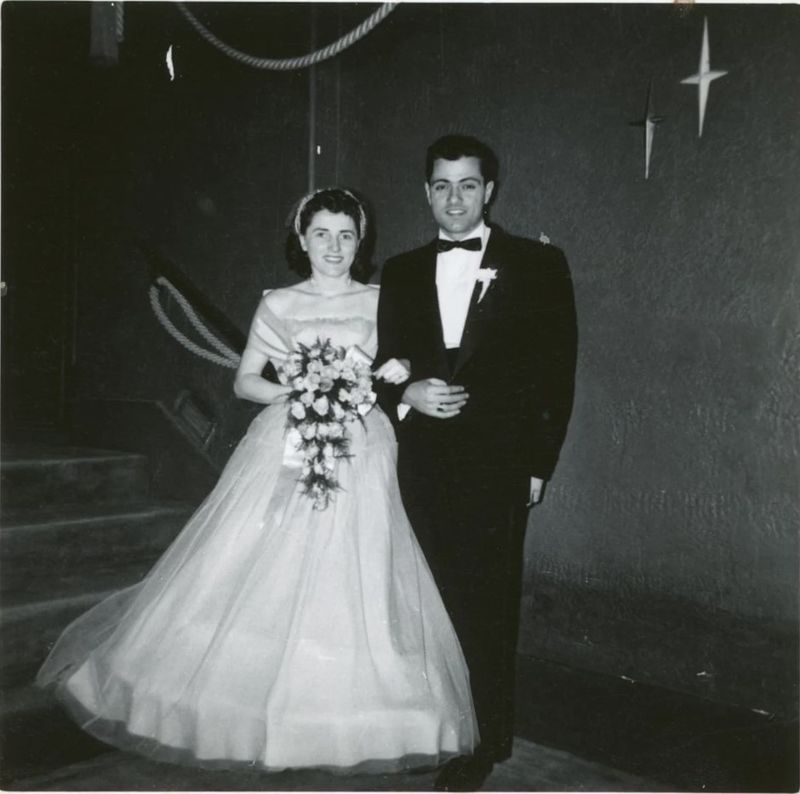
For Boomers, the path to cohabitation was clear: marriage came first. This rule reflected the era’s strong emphasis on traditional family structures, where marriage was seen as a prerequisite for living together.
Boomers recall the societal pressures to adhere to this norm, as cohabitation without marriage was often viewed as scandalous. This expectation reinforced the sanctity and seriousness of marriage as a lifelong commitment.
While contemporary views on relationships have evolved, this rule was significant in shaping Boomer attitudes toward marriage, highlighting its importance as a foundational social institution.
9. You stayed at one job as long as possible

The Boomer generation was instilled with the belief that job stability was essential. “You stayed at one job as long as possible” was a rule that emphasized loyalty and commitment to one’s workplace.
Boomers often recall the sense of security that came with long-term employment, as well as the respect garnered from building a career over decades. This rule highlighted the value placed on perseverance and dedication.
While today’s job market promotes mobility and change, Boomers were taught to prioritize stability and reliability in their professional lives, often leading to lifelong careers within a single company.
10. Calling adults by first names was off-limits
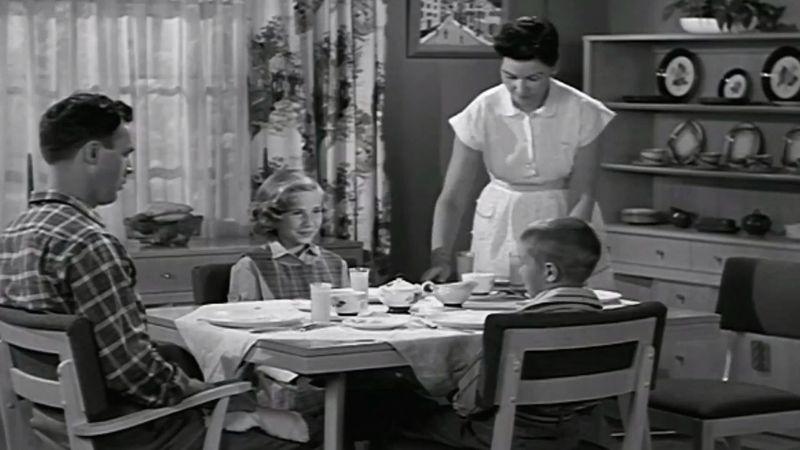
For Boomers, addressing adults by their first names was generally off-limits, a reflection of the formal respect expected of younger generations. This rule emphasized the boundaries and hierarchy inherent in social interactions.
Boomers recall the use of titles and last names as a sign of respect, reinforcing the distance between adults and children. This practice instilled a sense of propriety and respect for authority.
Today, informality is more common, but Boomers were taught to recognize the importance of titles, which served as a reminder of the social order and respect owed to elders.
11. Discipline stayed in the home
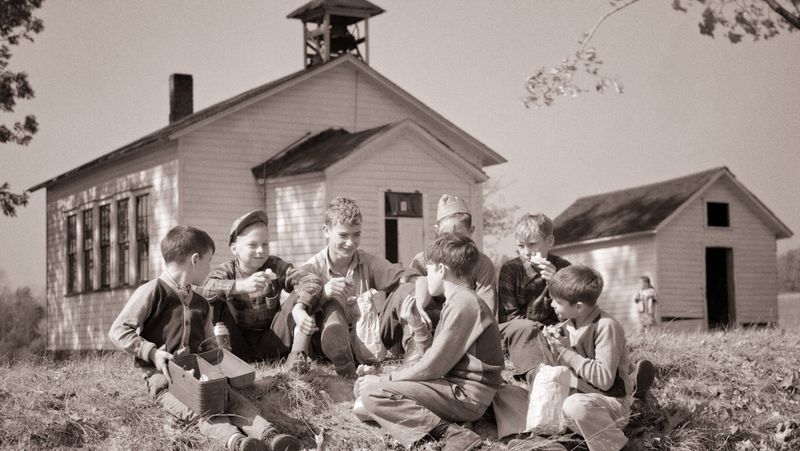
In the Boomer era, discipline was considered a domestic affair, with parents wielding the primary responsibility for instilling values and correcting behavior. “Discipline stayed in the home” was a reflection of the era’s attitudes towards parental authority.
Boomers remember the structured environments, where discipline was part of daily life, often through chores and responsibilities. This rule reinforced the notion that parents were the ultimate authority figures.
While approaches to discipline have evolved, for Boomers, it was a foundational aspect of upbringing, teaching them respect for rules and the consequences of actions.
12. You only called during “appropriate hours”

“You only called during ‘appropriate hours'” was a rule that defined social etiquette in the Boomer era, particularly concerning phone usage. This guideline underscored the respect for others’ time and privacy.
Boomers grew up in a time when phone calls were significant events, often planned and limited to specific times of the day. This taught them the importance of boundaries and consideration for others’ schedules.
While modern technology allows for constant communication, this rule emphasized the value of mindful interaction, highlighting respect and courtesy in maintaining personal connections.
13. You wore your “Sunday best” in public
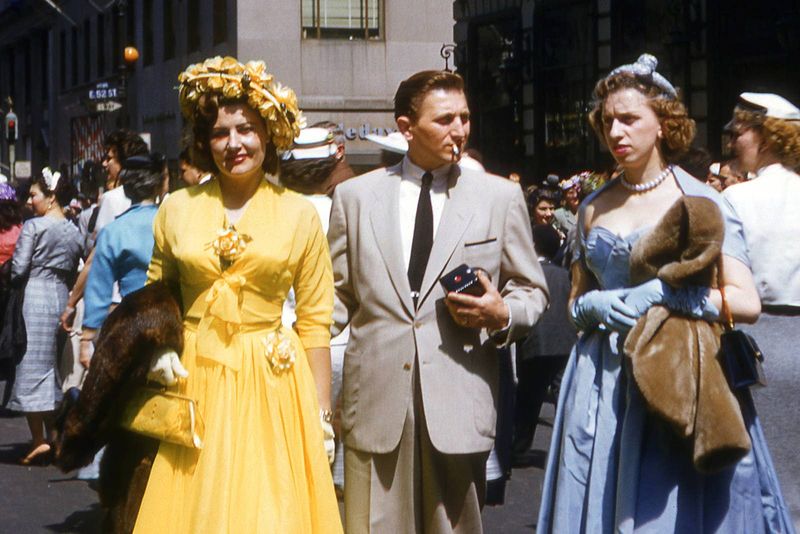
For Boomers, wearing your “Sunday best” in public was more than just a fashion choice; it was a reflection of self-respect and social standing. This rule emphasized the importance of appearance in society.
Boomers recall the effort put into dressing up for various occasions, where looking presentable was considered a sign of respect for oneself and others. This tradition was particularly evident in church and community gatherings.
While today’s fashion norms are more relaxed, Boomers learned the significance of dressing for the occasion, reinforcing the idea that how one presents oneself can affect perceptions and interactions.
14. Children were seen, not heard
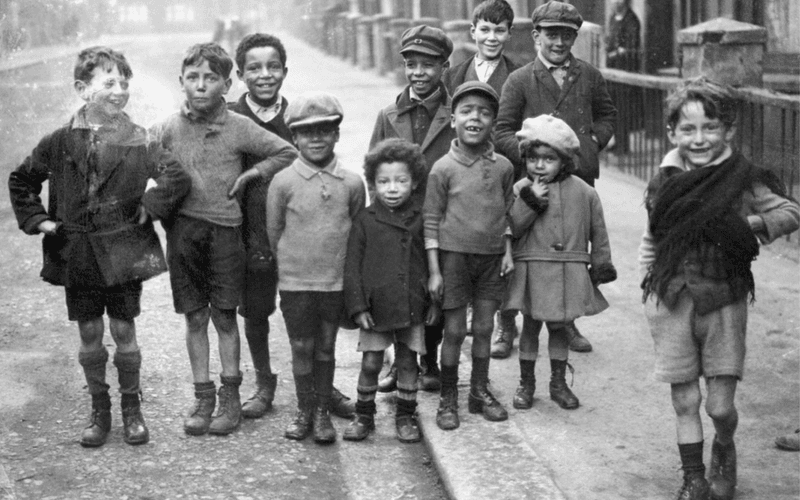
“Children were seen, not heard” encapsulates a key expectation for Boomers during their formative years. This rule highlighted the belief that children should be well-behaved and unobtrusive, particularly in adult settings.
Boomers recall the emphasis on quietness and politeness, where being respectful often meant staying silent and attentive. This taught them the importance of observing and learning from their surroundings.
While modern parenting may encourage more expressive children, Boomers were raised with the understanding that their presence should not disrupt the adults, instilling a sense of discipline and respect.
15. Keeping up appearances mattered more than feelings

In the Boomer era, maintaining appearances often took precedence over expressing feelings. This rule reflected the societal emphasis on reputation and public perception.
Boomers grew up in a world where how one was viewed by others could often define success and social standing. This focus on appearances sometimes meant suppressing emotions to maintain a polished exterior.
While today’s culture is more attuned to emotional expression, Boomers learned the art of keeping up appearances, a skill that often required balancing personal needs with societal expectations.

